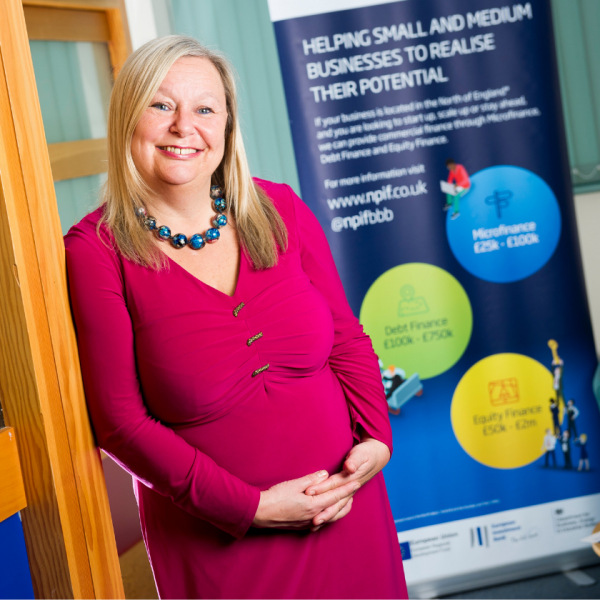When Cumbria Chamber of Commerce launched its coronavirus survey in March 2020, the biggest problem facing businesses was cash flow.
Businesses that had stopped trading because of lockdown, or were operating at a much-reduced level, were struggling to pay their bills.
Chancellor Rishi Sunak responded by unveiling various loan schemes, wholly or partially underwritten by the Government, designed to keep businesses afloat.
By far the most popular is the Bounce Back Loan Scheme (BBLS), which has provided 1.5m loans totalling £46.5bn as of March 21, 2021.
This allows small and medium-sized businesses to borrow between £2,000 and up to 25% of their turnover. The maximum loan is £50,000.
There are no fees, no personal guarantees, no interest to pay for the first 12 months and no requirement to start repayments for 18 months. The interest rate from year two onwards is fixed at 2.5%.
The Chancellor subsequently announced enhancements to the scheme. The loans can be repaid over 10 years (previously the maximum term was six years). Interest-only periods of up to six months and payment holidays are also available.
Businesses that have one of these loans can apply for a top-up from their existing lender if they originally borrowed less than the £50,000 maximum. A borrower can apply for a top-up that is for the lesser of £50,000 or 25% of the annual turnover the borrower certified in their original successful BBLS application form, minus the value of their original loan.
Banks have taken a laissez-faire attitude towards BBLS lending because the loans are fully guaranteed by the Government – the lender doesn’t lose out if the borrower defaults. Official figures show that 74% of loan applications are successful.
However, as far as we’re aware, lenders are only accepting applications from businesses that bank with them. HSBC was accepting applications from businesses that bank elsewhere but is no longer doing so.
The scheme has been extended until March 31, 2021.
Watch this video to learn more about it:
SMEs needing to borrow more than £50,000 should consider the Coronavirus Business Interruption Loan Scheme (CBILS).
CBILS offers advances up to £5m. Like the BBLS, they are fee-free and interest-free for 12 months. The advance can be in the form of term loans, overdrafts, invoice finance or asset finance.
The Government guarantees 80% of the loan so reducing – but not eliminating – the risk to lenders. That makes them a little harder to get hold of, only 42% of loan applications are successful.
Lenders will not demand personal guarantees for loans under £250,000.
The Chancellor has extended the period of the Government’s guarantee from six years to 10 with the intention that lenders will allow borrowers to reschedule payments over 10 years if they need to.
Although the take-up has been relatively small compared with BBLS – 98,000 loans granted with a total value of £23.3bn – CBILS is a great scheme for businesses needing to borrow larger sums.
Maria Ramsdale, an Investment Executive at FW Capital, one of the accredited CBILS lenders, said: “Whether they need additional funding to help with cash flow, bring back furloughed staff or make adjustments to their business model, a CBILS-backed loan could help businesses on the path to recovery.
“A-CBILS backed loan could provide Cumbrian businesses with a much-needed lifeline during this unprecedented period of uncertainty.”
The deadline for applications is now March 31, 2021.
CASE STUDY: Read how the Haweswater Hotel took advantage of CBILS to avoid going into administration and take the business to the next level.
CBILS and BBLS are available only to SMEs. Larger businesses should look at the Coronavirus Large Business Interruption Loan Scheme (CLBILS), which offers advances up to £200m to businesses with a turnover of more than £45m.
Like CBILS, 80% of the advance is guaranteed by the Government and lenders will not ask for personal guarantees for loans up to £250,000.
Finance is available in the form of term loans, revolving credit facilities (overdrafts), invoice finance or asset finance. The maximum term is three years. Nationally, 716 loans totalling £5.3bn have been granted so far.
Companies borrowing more than £50m through CLBILS are subject to restrictions on dividend payments, senior pay and share buy-backs during the period of the loan.
Again, the deadline for applications has been extended until March 31, 2021.
The Future Fund, which offered convertible loans to businesses driving innovation, closed to applications on January 31. Unlike the other schemes, it hasn’t been extended until March 31.
The schemes listed above are to be replaced by Recovery Loans, to be offered from April 6 to December 31, 2021.
Term loans and overdrafts will be available between £25,001 and £10m per business. Invoice finance and asset finance will be available between £1,000 and £10m per business. Finance terms are up to six years for term loans and asset finance facilities. For overdrafts and invoice finance facilities, terms will be up to three years.
No personal guarantees will be taken on facilities up to £250,000, and a borrower’s principal private residence cannot be taken as security. The Government guarantees 80% of the finance to ensure lenders have the confidence to lend. Loans will be available through accredited lenders with details of who they are to follow.
Growth Hub advisers can help eligible businesses with applications for all these schemes, in particular for CBILS and the new Recovery Loans where getting your application right greatly improves your chances of securing the loan.
And while this article is about the Government schemes launched in response to Covid-19, we can also direct you to other sources of finance such as the Northern Powerhouse Investment Fund. More here.
Call us today on 0844 257 84 50 or email info@cumbriagrowthhub.co.uk and start a conversation on how we can help your business to survive and thrive.
